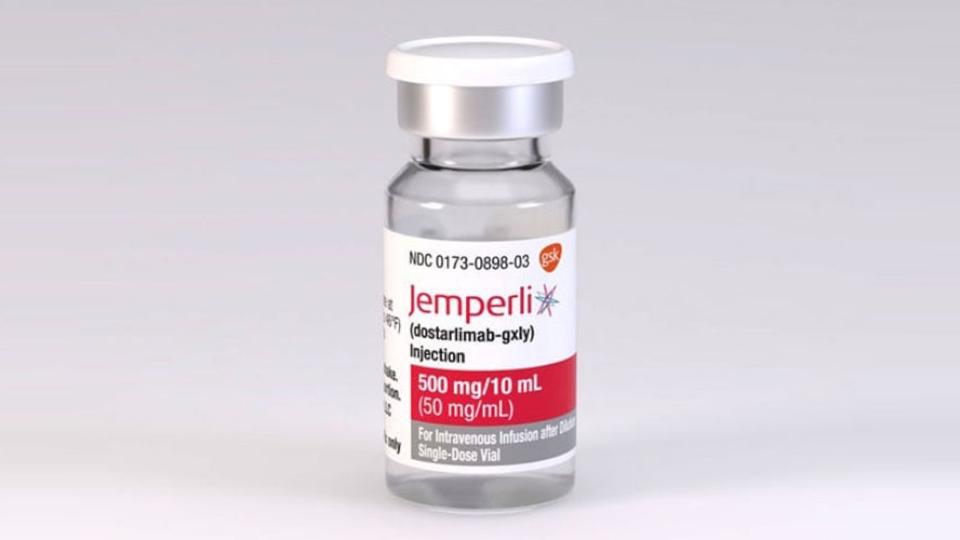NICE backs frontline use of Jemperli in endometrial cancer

GSK’s PD-1 inhibitor Jemperli has been cleared for use by the NHS as a first-line treatment for a specific type of endometrial cancer, making it an option for around 580 women across England, Wales, and Northern Ireland.
Final draft guidance published today by health technology assessment (HTA) agency NICE recommends the use of Jemperli (dostarlimab) in combination with platinum-based chemotherapy for the treatment of adults with mismatch repair deficient (dMMR) or microsatellite instability-high (MSI-H) primary advanced or recurrent endometrial cancer.
First-line use of Jemperli with chemo is “the first major advance in decades for women with this disease, with the potential to significantly improve their survival,” according to cancer specialist Dr Rebecca Kristeleit of Guy’s and St Thomas’ NHS Foundation Trust and King’s College London. A decision by the Scottish Medicines Consortium (SMC) is currently pending.
Endometrial cancer is the malignancy with the highest prevalence of MMRd/MSI-H, and is the UK’s most common gynaecological cancer, with an incidence that has risen around 12% in recent years and climbing mortality rates.
The median overall survival (OS) of people with recurrent, advanced endometrial cancer is reported to be less than three years when treated with chemo alone.
The decision comes around two years after Jemperli was made available in England via the Cancer Drugs Fund (CDF) as a second-line monotherapy after chemo for women with dMMR or MSI-H endometrial cancer.
Jemperli’s was approved for the first-line indication last year, becoming the first immunotherapy for these patients, on the strength of data from Part 1 of the RUBY trial. The results showed that adding the PD-1 inhibitor to chemo led to a 71% reduction in the risk of disease progression or death in dMMR and MSI-H patients, as well as an improvement in OS.
The study showed a benefit for all patients with endometrial cancer, including those without dMMR/MSI-H, but regulators opted to limit the use of the drug to those with the biomarkers, as the benefits were considerably more pronounced in that group. GSK is continuing to follow the patients in RUBY to see if overall survival data will support an ‘all-comer’ label in future.
GSK views the endometrial cancer indication as a catalyst to grow annual sales of Jemperli above the £1 billion ($1.27 billion) threshold, its target for the drug, which was acquired as part of its $5.1 billion takeover of Tesaro. Sales have started to accelerate, coming in at £141 million last year, up from just £21 million in 2022.
Other cancer immunotherapy developers are also targeting first-line endometrial cancer, so competition to Jemperli could be on the way.
Last year MSD reported data from its pivotal NRG-GY018 study of Keytruda (pembrolizumab) plus chemo, which was filed with the FDA in an all-comer population last month. Also, a combination of AstraZeneca’s Imfinzi (durvalumab) plus chemo showed a benefit on its own and in a triple therapy with AZ’s PARP inhibitor Lynparza (olaparib) in the DUO-E study.













